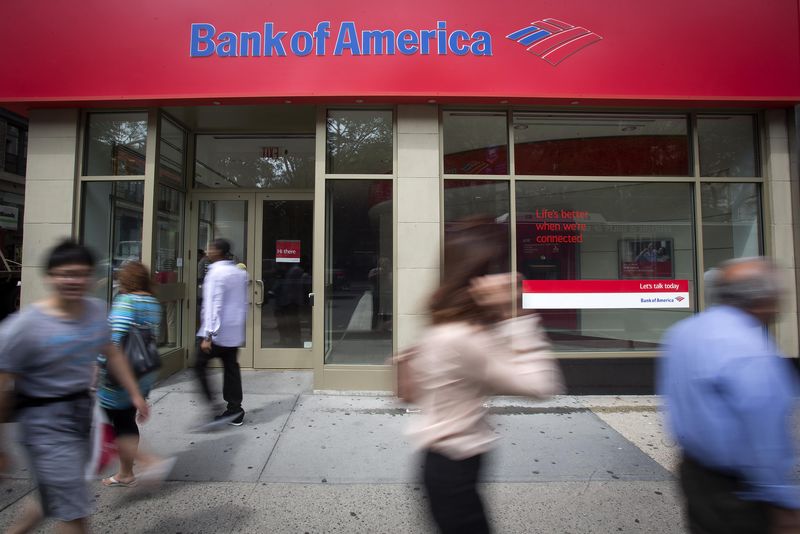Benzinga - by Piero Cingari, Benzinga Staff Writer.
The fastest easing of financial conditions in history could leave markets offsides if the expected ideal economic scenario fails to materialize, Bank of America warned in a note released on Tuesday.
The bank’s analysts observed that investors recently adopted a conflicting stance, anticipating more than five Federal Reserve rate cuts and maintaining an excessively optimistic view on inflation.
Bank of America advised investors to be wary of the bond market’s relatively dovish position compared to the Federal Reserve. It also raised concerns that Federal Reserve rate cuts in the current year might perpetuate inflationary pressures.
Here are 10 surprises that could affect markets in 2024, according to the bank’s latest Research Investment Committee (RIC) report:
High Bond Taxes Shifting Focus to Stocks: Investors, initially drawn to the allure of 5% yields in Treasury securities, might pivot to equities due to favorable tax treatments. BofA notes the distinction between a 37% tax on Treasury coupon payments and a 20% tax on long-term stock holdings.
Stable Corporate Landscape Despite 5% Rates: Despite higher default rates, the robustness of corporate debt structures, alongside substantial cash reserves and private credit availability, suggests a low likelihood of a widespread bankruptcy wave.
IPO Market Set for a Comeback: After a sluggish 2023, favorable macroeconomic conditions and interest rate cuts could rejuvenate the IPO market, benefiting large banks, as tracked by the SPDR S&P Bank ETF (NYSE:KBE), and exchanges.
Japan: The Dark Horse of Developed Markets: Masashi Akutsu, BofA’s Strategist, predicts a 13% upside for Japanese equities, monitored through the iShares MSCI Japan Index Fund (NYSE:EWJ), driven by corporate reforms and attractive valuations compared to U.S. stocks.
Geopolitical Risks Weighing on Tech Giants: The reliance of major tech firms like Apple Inc. (NASDAQ:AAPL) and NVIDIA Corp. (NASDAQ:NVDA) on Taiwanese chipmakers aligns their performance closely with Taiwan Semiconductor Manufacturing Company Ltd (NYSE:TSM). Amid rising geopolitical risks in the region, BofA suggests a shift to more balanced equity indices, such as the Invesco S&P 500 Equal Weight ETF (NYSE:RSP).
Biotech and Pharma Poised for Growth: Following a 2023 dominated by weigh-loss drugmakers, advancements in Alzheimer’s research could propel the pharmaceutical sector, as tracked via the iShares U.S. Pharmaceutical ETF (NYSE:IHE), to new heights.
Rationalizing Energy Investments: With renewable energy stocks underperforming, investors might turn to more traditional energy sources, recognizing the value in undervalued oil, gas, and nuclear sectors.
The Fragile Path to Low Inflation: Market consensus for a smooth inflation reduction could be upended by various global events, potentially leading to higher inflation scenarios. BofA warns that disruptions in the Red Sea represent a dangerous threat to the inflation’s perfect landing scenario that markets are pricing in.
Demand for Premium on Government Debt: Fading confidence in the U.S. government’s budget sustainability might lead investors to seek higher yields for long-term government bonds.
Renewed Affection for Free Markets: As regulatory burdens remain high, the upcoming U.S. election could spark hopes for a more business-friendly environment, boosting investor confidence in equities.
Read Now: El Salvador’s Bitcoin Bet Pays Off, Sovereign Bonds Skyrocket 200%, Challenging IMF’s Warning
© 2024 Benzinga.com. Benzinga does not provide investment advice. All rights reserved.
Read the original article on Benzinga
